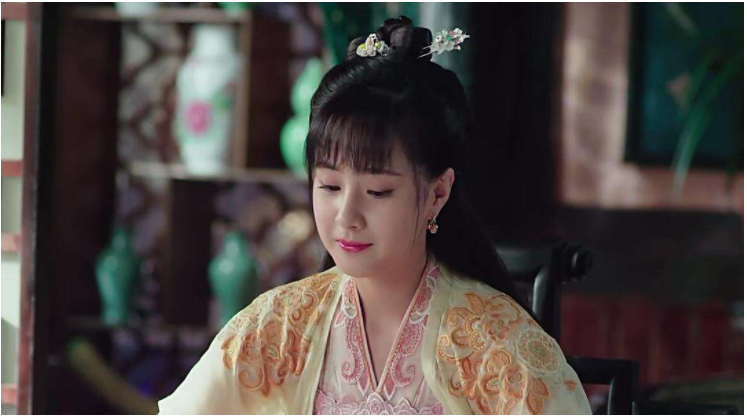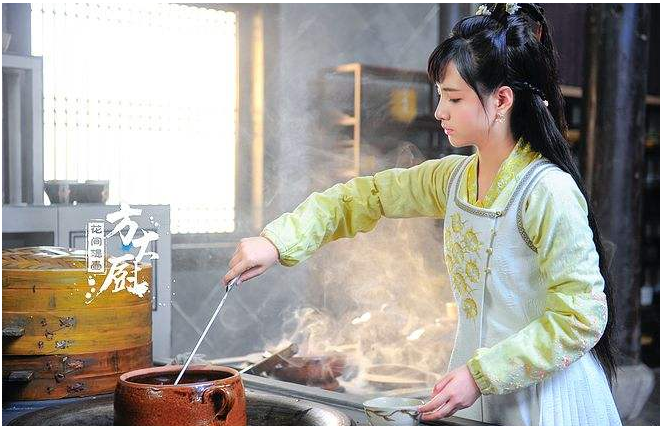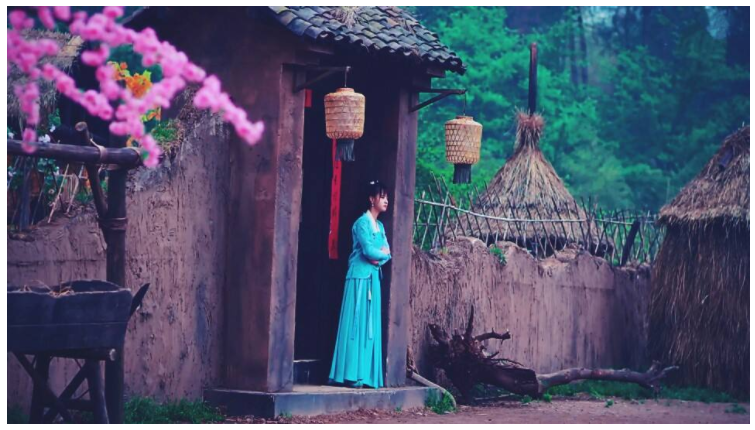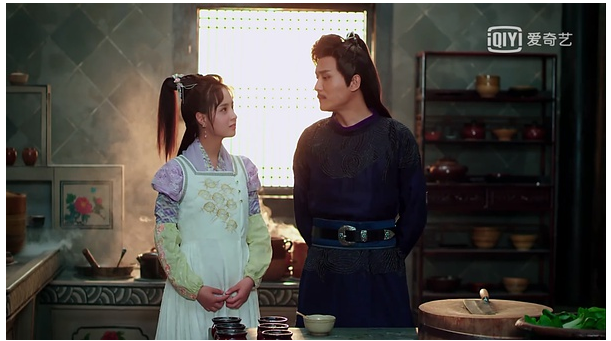How to calculate the compensation standard? Why is it so difficult to install elevators in old communities?

● Installing elevators in old communities not only helps to alleviate the problem of "travel difficulties" of the elderly in the aging society, but also is a powerful measure to promote the transformation of old communities. At present, the modes of installing elevators mainly include agent leasing, self-construction by residents and investment by property rights units or collective organizations.
● At present, there are still various problems in practice. For example, it is difficult to get residents’ satisfaction by installing elevators. Some residents refuse to install elevators because of sharing the cost and causing inconvenience to their lives. Some residents regret after installing elevators, which leads to many community contradictions and disputes.
● In terms of policy design, local governments can further improve the voting rules for installing elevators within the legal framework; Formulate quantitative compensation standards according to disputed matters; According to the frequently disputed problems in the process of elevator installation and the technical problems that residents are generally concerned about, relevant action guidelines or operation manuals shall be worked out.
□ Trainee reporter of this newspaper Sun Tianjiao Zhang Shoukun
□ Our reporter Han Dandong
At 10 am on January 15th, 76-year-old Uncle Wang was sitting on the community promenade in Gaojiayuan Community, Chaoyang District, Beijing, chatting with his neighbors. This is the first time he went downstairs in nearly half a month.
The residential area where Uncle Wang lives was built in 1980s, and it is a six-story unit building with no elevator. He lives on the top floor. Because of the inconvenience of his legs and feet, he usually doesn’t go downstairs. The necessities of daily life are sent by his son who lives in the same city every few days.
"If only there were an elevator outside the building, it would be much more convenient to go up and down." Uncle Wang is looking forward to it.
Nowadays, in cities, there are more and more elderly people like Uncle Wang who are "difficult to climb the stairs" and "not free to go downstairs". According to the statistics of the Ministry of Housing and Urban-Rural Development and other relevant departments, the number of old houses built in China from 1980 to 2000 is about 8 billion square meters, and more than 70% of the urban elderly people live in old buildings without elevators. It is estimated that the number of elevators needed to be installed in old buildings in China is more than 2 million.
In recent years, the national and local authorities have paid more and more attention to the elevator installation project in old residential areas. According to the official news of the Ministry of Housing and Urban-Rural Development, since 2019, 112,000 old urban communities have been newly started and renovated nationwide, and nearly 20,000 elevators have been installed in various places in combination with the renovation of old urban communities.
In terms of quantity, the gap of installing elevators in old communities is still large. However, according to a recent investigation by the reporter of the Rule of Law Daily, there are still various problems in practice. For example, it is difficult to get residents’ agreement on installing elevators. Some residents refuse to install elevators because of cost sharing and inconvenience in life, and some residents regret after installing elevators, which has led to many community contradictions and disputes.
Experts interviewed by the reporter agreed that it is indeed necessary to install elevator projects in old communities, but it is necessary to establish a more clear and understandable policy system and update rules to form a more perfect interest coordination mechanism.
Install elevators in old communities.
High-rise residents have received constant praise.
Uncle Zhang, who lives in Building 50, Tiantan Dongli, Dongcheng District, Beijing, is luckier than Uncle Wang — — The outdoor elevator has been installed in the residential unit building where he lives.
Uncle Zhang is over 70 years old this year, and a family of five lives on the sixth floor of Unit 4. Before the elevator was installed, everyone in the family was full of complaints about going up and down the stairs: grandson usually goes to school and wants to play with his friends, always complaining that climbing stairs is tiring and wasting time; The old couple usually buy food or take heavy things outside, and it is particularly difficult to move upstairs.
In 2018, the community installed outdoor elevators for units 3 and 4, which made it much more convenient for residents to swipe their cards and go upstairs and downstairs.
At the end of December 2021, the reporter came to the community to see that in addition to the elevators already built in Units 3 and 4, a new external elevator was being built between Units 1 and 2. A passing unit resident said, "We were envious when we saw that they had an elevator. Now we finally have it, so we don’t have to climb the stairs."
The reporter interviewed a number of elderly people randomly and found that after the installation of elevators in old communities, high-rise residents received constant praise.
In the Beili Community of Fatou, Chaoyang District, Beijing, the reporter saw that the highest floor of this old community built in the 1980s is 6 floors. In front of Building 16, four completed external elevators have been erected, and several elevators are under construction in front of Building 17.
On the wing of Building 17, the reporter saw Ms. Han who went downstairs for a walk. Ms. Han, 78, lives with her wife on the 4th floor, Unit 3, Building 17. Because there is no elevator, it is inconvenient to go up and down the stairs. My son once proposed to buy a house with an elevator for them, but the parents could not bear to part with the neighborhood, so they gave up.
"Fortunately, it is necessary to install an elevator now. For our family, it really saves time, effort and money." Ms. Han said.
According to Yang Qinfa, director of the Institute of Real Estate Policy and Law of East China University of Political Science and Law, the installation of elevators in old communities not only helps to alleviate the problem of travel difficulties for the elderly in an aging society, but also is a powerful measure to promote the transformation of old communities. At the same time, it is a major livelihood project to promote the installation of elevators in old residential areas. Apart from the broad market prospect of elevator industry, the installation of elevators in old residential areas can also promote the development of industrial chains related to real estate, which is also of great significance to stimulate residents’ consumption.
During the interview, the reporter found that the current mode of installing elevators in old communities is not exactly the same.
When Ms. Wang, who lives in the 6th floor, Unit 2, Building 17, an old residential area in xiaodian district, Taiyuan, Shanxi, installed the elevator in her residential area, she adopted a more traditional way of joint investment by residents. According to Ms. Wang, at that time, the government subsidized a lot of funds. The first to second floor residents did not bear the installation cost, and the expenses shared by the third to sixth floors varied according to the floor height, with a maximum of about 18,000 yuan. As the top resident, Ms. Wang contributed a total of 18,300 yuan.
Beijing Tiantan Dongli Building No.50 and Fatou Beili Community are different. It is understood that residents did not spend a penny when installing elevators in these two communities. After the elevators are built, residents can take the elevator card, just like taking a bus. Whoever takes the elevator will pay for it.
In front of the elevator in Building 50 in Dongli, Tiantan, the reporter found that non-resident visitors can also take the elevator by scanning the QR code through their mobile phones. The single price is 1.5 yuan, regardless of the floor. According to Uncle Zhang, residents in the building will get a "preferential price" after they get a card, which varies from 0.5 yuan to 0.9 yuan according to different floors. "Our family lives on the top floor, and every time we take the elevator, we have to spend 0.9 yuan. My grandson often goes back and forth after having the elevator. In fact, the cost is not small. Our family spends more than 100 yuan on the elevator every month."
At present, the elevators in Fatou Beili Community only support credit card use, and foreign visitors can’t ride without a card.
Yang Qinfa said that at present, there are three main modes of installing elevators, namely, residents’ self-construction, agent leasing and property rights units or collective organizations’ investment.
Yang Qinfa believes that among the three ways, the best way for residents is "agent leasing": the elevator is built by a third party, and residents in the community only need to pay a certain ride fee when using the elevator, and the maintenance fee, maintenance fee and electricity fee of the elevator are borne by the third party. This method can solve the problem of capital contribution among residents, but the difficulty lies in the will of the elevator company because of the great pressure on it. Therefore, at present, the owner’s self-financing and self-construction method is also being implemented.
Many problems cannot be ignored.
One-vote veto is controversial
Although the call for installing elevators is strong, the reporter randomly visited 12 old residential areas in Beijing and Tianjin and found that only three have installed elevators, and the number and proportion are still relatively small, and they have not covered all residential buildings. In addition, some residents have different troubles in the residential areas where elevators have been installed or planned.
Mr. Liu, a 76-year-old resident on the first floor of Unit 6, Building 16, Fatou Beili Community, said, "We are old neighbors for decades, so I agreed without any hesitation when I asked the residents about installing the elevator, but I encountered some troubles after installing the elevator."
Because he lives on the first floor, Mr. Liu immediately felt that the lighting in the room was affected after the elevator was built. Usually, the lighting in the living room is quite good, but even during the day after the elevator, you have to turn on the lights at home, otherwise you can’t see clearly.
In addition, outside the window of Mr. Liu’s kitchen is the elevator. When the elevator is designed, it extends a eaves, which is just as high as the window on the first floor. As a result, rain water will drip into Mr. Liu’s kitchen along the eaves when it rains, and the kitchen will become damp over time.
Ms. Wang of Taiyuan also feels that there are some problems: "The elevators in the community are installed outside the building, which takes up a lot of outdoor space, which affects the neatness, neatness and beauty of the outdoor, and therefore reduces the number of parking spaces."
Ms. Wang recalled that at that time, the low-rise residents in the next unit did not agree to install elevators, because it would reduce the rent and the selling price of second-hand houses. They even asked other residents to pay compensation, otherwise they would resolutely oppose it, so that everyone could not install elevators. "The residents of that unit also quarreled many times, and the neighborhood Committee could not mediate, and eventually it was not installed."
It is not uncommon for low-rise residents to oppose the installation of elevators. In Building 16, Beili Community, Fatou, no elevators have been installed in Units 2 and 4. The reporter learned from the residents that this was because the low-rise residents of Units 2 and 4 explicitly opposed it when soliciting the opinions of residents at that time, so they were not built at the same time.
It is reported that at present, the procedures for installing elevators in old residential areas in Beijing mainly refer to the Manual for Comprehensive Renovation of Old Residential Areas in Beijing issued by the Beijing Municipal Commission of Housing and Urban-Rural Development in April 2020, in which the requirement for soliciting residents’ opinions is that "the intention and preliminary plan of installing elevators in existing multi-storey houses should fully listen to the opinions of all owners within the scope of the proposed installation of elevators, and be agreed by the owners whose exclusive parts account for more than two-thirds of the total construction area of the unit and more than two-thirds of the total number, and other owners have no objection".
This means that once residents clearly express their opposition, even if the proportion of owners who agree is up to standard, the unit still cannot be equipped with elevators.
Like Beijing, the "one-vote veto" system in which one person opposes the total denial of the installation of elevators in old residential areas has been "evaded" in many places through relevant regulations.
For example, in January, 2021, Shanghai Housing and Urban-Rural Development Management Committee and Shanghai Housing Authority jointly issued the Notice on Adjusting the Vote Proportion of Owners Adding Elevators to Existing Multi-storey Houses in this Municipality, which stipulated that applicants should fully negotiate on the intention and specific scheme of adding elevators, and solicit the opinions of all owners of the building where they are located. Owners with exclusive parts accounting for more than two-thirds of the area and more than two-thirds of the owners participated in the voting, and owners with exclusive parts accounting for more than three-quarters of the area participated in the voting.
The Interim Measures for the Installation of Elevators in Existing Houses in Qingdao also stipulates that if the owners fail to reach an agreement after full friendly consultation, the owners whose exclusive parts account for more than two-thirds of the area of this unit (this building) and whose number accounts for more than two-thirds will participate in the voting, and the written consent will be signed by the owners who participate in the voting for more than three-quarters of the exclusive parts and who participate in the voting.
According to Yang Qinfa, because the installation of elevators is a major issue related to joint ownership and management, in accordance with the provisions of Article 278 of the Civil Code, the legal voting procedures should be agreed by the owners who participate in voting for more than three-quarters of the exclusive area and more than three-quarters of the voting people. "The above regulations can obviously solve the current situation that one person’s opposition can hinder the installation of elevators."
However, Yang Qinfa said that there are more detailed regulations on elevator installation in various places, and at present, most of them are based on their local regulations. Whether to adopt the "one-vote veto system" on the issue of installing elevators in old communities to solicit residents’ opinions is still controversial.
Work together to solve difficult problems.
Fully protect the convenience and benefit the people.
In recent years, more and more attention has been paid to the installation of elevators in old communities. The reporter found out that the renovation of old residential areas in the "14 th Five-Year Plan" for housing in many places involved the installation of elevators. For example, the "14 th Five-Year Plan for Urban Housing Development in Jiangsu Province" puts forward that "the shortcomings of public services such as child care, old-age care, and housekeeping should be filled, and the greening transformation and the aging transformation of existing multi-storey houses with elevators and barrier-free facilities should be encouraged"; The Tenth Five-Year Plan for the Development of Urban Housing in Zhejiang Province puts forward measures such as accelerating the installation of elevators in residential buildings and vigorously improving the quality of living.
Yang Qinfa said that the installation of elevators in old residential areas involves different interests of residents in the community and requires a lot of coordination work; On the other hand, it involves complicated examination and approval procedures. For elevator installation enterprises, they are obviously more inclined to engage in elevator installation business in new houses with higher efficiency.
For the further improvement of installing elevators in old residential areas, Yang Qinfa proposed that policy design should be changed from rule-oriented to goal-oriented in the process of standardization. The service object of urban renewal is residents, so it is particularly important to establish a clear division of powers and responsibilities, standardized operating procedures, easy-to-understand policy system and renewal rules.
"Compared with regular policies, target-oriented policies tend to adopt the method of mobilizing governance in the specific implementation process, that is, pooling the main bodies and resources of the grassroots administrative system and community governance system as much as possible, which is conducive to promoting the efficient implementation of policies." Yang Qinfa suggested that in policy design, local governments can start from the following three aspects: to further improve the voting rules for installing elevators within the legal framework; Determine the compensation basis of relevant interests, and formulate quantitative compensation standards according to disputed matters, such as construction noise compensation; Accelerate the formulation of the code of conduct for elevator installation, and formulate relevant code of conduct or operation manual around the controversial common problems and technical problems that residents are generally concerned about in the process of elevator installation.
At the same time, he also noticed the problem of government responsibility boundary in the process of elevator installation. In the initial stage of urban renewal projects such as installing elevators, the government still needs to take the initiative to play its role, organize and coordinate various forces, and form a driving and demonstration. When the time is ripe, we will gradually withdraw and hand over the "right to speak" to residents, who will actively coordinate, declare and promote the project.
"For example, it is difficult for the owners to reach an agreement on the distribution of relevant interests through self-negotiation. The relief and compensation mechanism should be improved, such as clarifying that the examination and approval authorities include the administrative reconsideration organs of construction, planning, fire protection, housing management and other departments, and establishing a professional administrative mediation mechanism for the transformation of old communities. In addition, it is also necessary to combine local economic levels, transaction prices of second-hand houses and other factors, and formulate a unified bottom-up method for residents who benefit from the appreciation of elevator houses to compensate for the depreciation of elevator houses, and guide residents who benefit from installing elevators to compensate residents whose interests are damaged, which is in line with the principle of fairness and reduces the infringement on the legitimate rights and interests of damaged residents. " Yang Qinfa said.
In terms of funds, Xu Fei, a lawyer of Beijing Yinghe Law Firm, suggested that social capital should be fully introduced and a variety of funds should be used to solve the problem of financial difficulties in adding elevators. At the same time, the volume of a single elevator project will be expanded, and bidding will be conducted jointly to reduce the cost of adding a single elevator.
For the daily maintenance of elevators, Xu Fei believes that professional elevator maintenance units or property management companies should be introduced for custody to strengthen the daily management and maintenance of elevators.
Yang Qinfa also suggested that an interest coordination mechanism should be established in the process of co-governance. On the one hand, we can explore the implementation of the "divided household system" for members of community neighborhood committees, go deep into every household in the responsibility area, listen to and collect residents’ views and opinions on installing elevators, register them in categories, and reflect them to the government and enterprises for communication; On the other hand, under the leadership of the relevant authorities, the community can set up a discussion platform for renovation with the participation of neighborhood committees, construction units and residents’ self-governing organizations, so as to provide open, fair and just ways and opportunities for participants with different opinions to solve disputes.
"Installing an elevator is not a one-step process, and its process is complicated. In the stage of coordination of residents’ interests, project approval and publicity, elevator installation and acceptance and later operation and maintenance, in order to achieve different goals, multiple subjects need to cooperate with each other. " Yang Qinfa said.











































